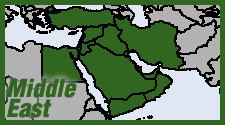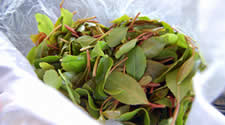 The growing paranoia about Iranian hashish flooding the puritanical Persian Gulf states will doubtless be jacked up by the latest busts—three Iranian men arrested off Dubai by security forces of the United Arab Emirates, accused of smuggling 223 kilograms of hash and nearly 20,000 Tramadol pills in the diesel tanks of their dhow. The Sept. 30 bust comes as a 35-year-old Bangladeshi worker was charged with possessing 10,350 Tramadol pills for distribution in the UAE. Days earlier, agents of Kuwait's Drug Control Department nabbed a Kuwaiti citizen and an accused accomplice of unspecified Arab origin in possession of 8 kilograms of hashish and 5,000 Tramadol tablets. (Gulf News, Sept. 30; Arab Times, Sept. 28)
The growing paranoia about Iranian hashish flooding the puritanical Persian Gulf states will doubtless be jacked up by the latest busts—three Iranian men arrested off Dubai by security forces of the United Arab Emirates, accused of smuggling 223 kilograms of hash and nearly 20,000 Tramadol pills in the diesel tanks of their dhow. The Sept. 30 bust comes as a 35-year-old Bangladeshi worker was charged with possessing 10,350 Tramadol pills for distribution in the UAE. Days earlier, agents of Kuwait's Drug Control Department nabbed a Kuwaiti citizen and an accused accomplice of unspecified Arab origin in possession of 8 kilograms of hashish and 5,000 Tramadol tablets. (Gulf News, Sept. 30; Arab Times, Sept. 28)

 The herbal stimulant khat is to be banned by the British government—against the advice of its own
The herbal stimulant khat is to be banned by the British government—against the advice of its own  Israeli scientists have developed a non-psychoative cannabis variety, in what is being portrayed as a boost for medical marijuana. According to Israel's
Israeli scientists have developed a non-psychoative cannabis variety, in what is being portrayed as a boost for medical marijuana. According to Israel's 





Recent comments
2 weeks 5 days ago
3 weeks 5 days ago
3 weeks 5 days ago
5 weeks 1 day ago
10 weeks 2 days ago
12 weeks 5 days ago
17 weeks 5 days ago
29 weeks 5 days ago
31 weeks 6 days ago
32 weeks 6 days ago